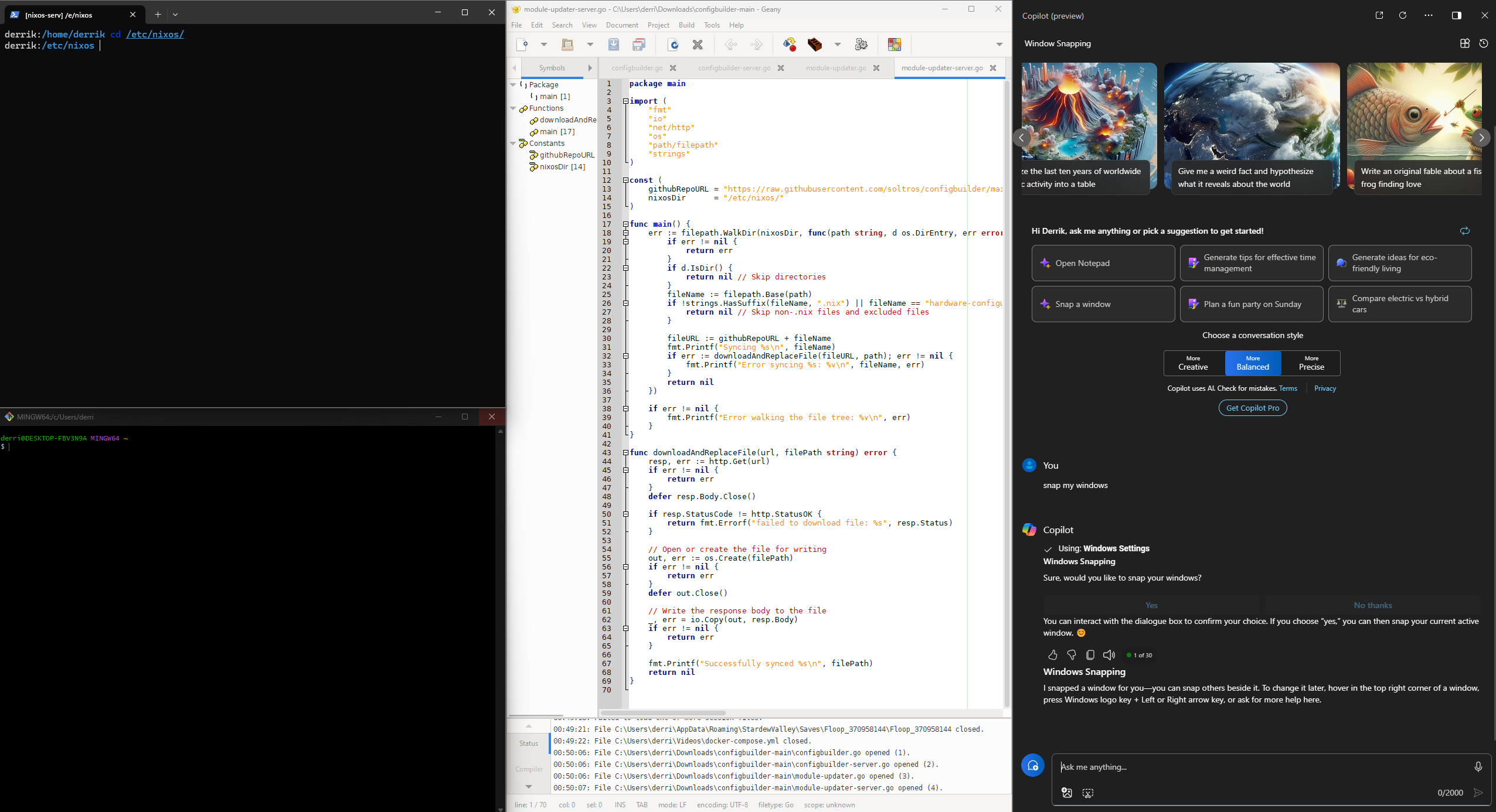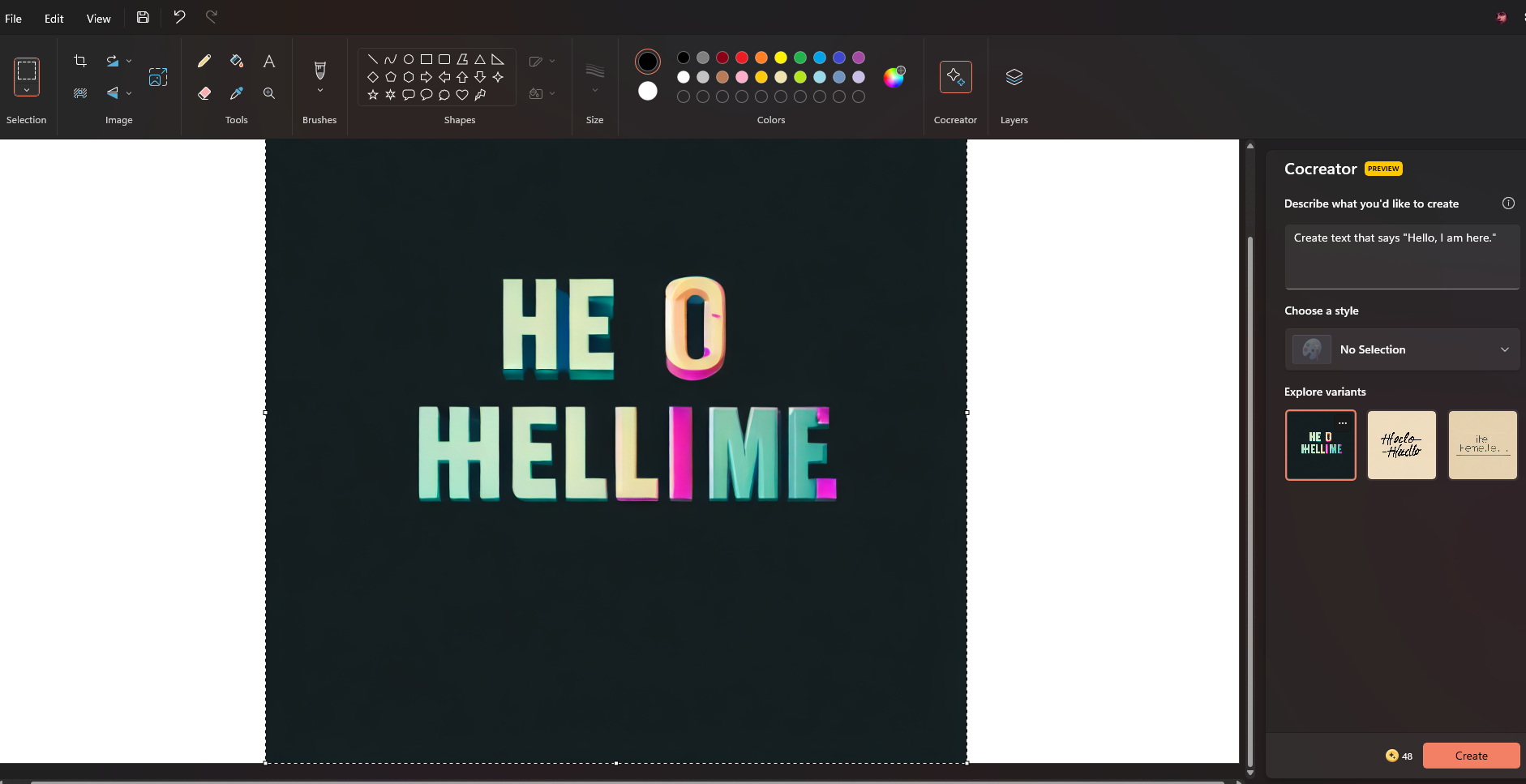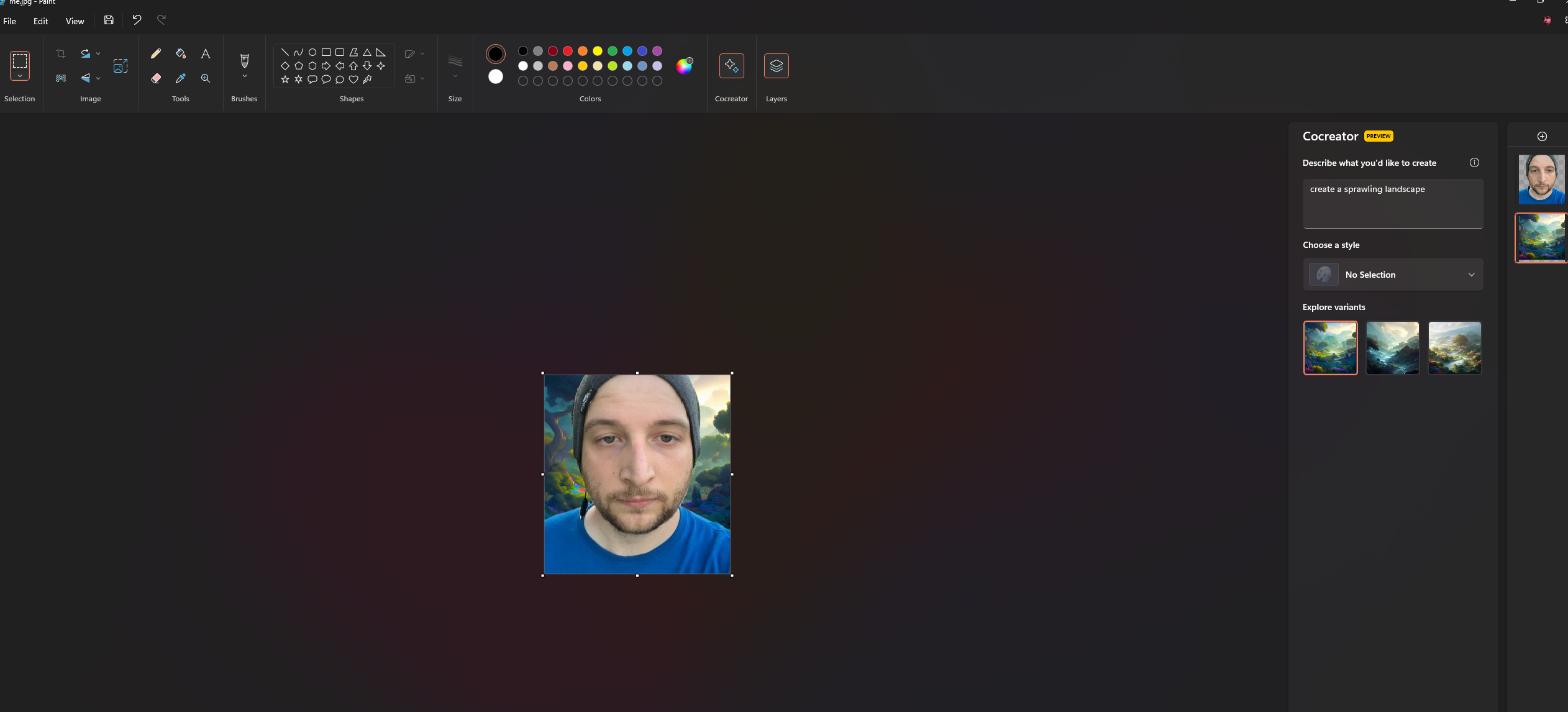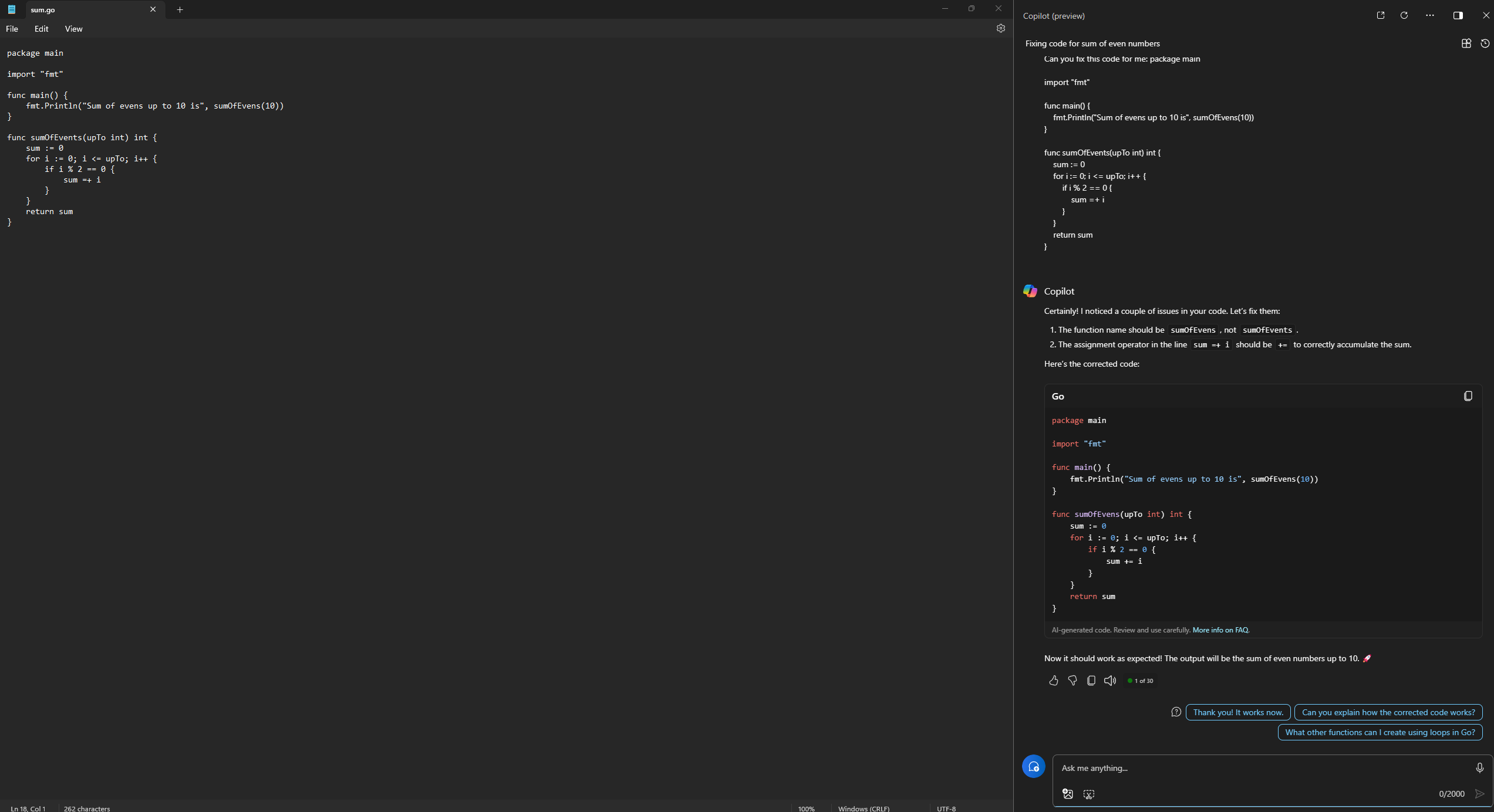 Front page > Software tutorial > How I Use Microsoft Copilot to Get the Most Out of My Windows 11 Desktop
Front page > Software tutorial > How I Use Microsoft Copilot to Get the Most Out of My Windows 11 Desktop
How I Use Microsoft Copilot to Get the Most Out of My Windows 11 Desktop
You've likely noticed by now that AI assistants, despite appearing nearly everywhere these days, don't always have obvious usecases. To that end, I've been using Microsoft Copilot on Windows 11 on everything from everyday tasks to advanced projects. I'll show you how it helps me get the most out of my daily PC use.
Are AI Assistants Really Useful?
In 2024, we're frewuently told that AI assistants should make using our tech a breeze. Microsoft's offering, Copilot, is being put on every PC Microsoft can. The chatbot aims to simplify messing with Windows settings, editing photos in Paint, working on Office documents, and making coding in Notepad faster.
But honestly, using AI can be hit or miss. It's awesome when you can just tell your computer to "open Paint" instead of digging through the Start menu, or have Copilot explain some complex code in Notepad. That part's cool. But then there are those times when you're stuck arguing with a chatbot for 10 minutes because it can't grasp what you're trying to do. That part? Not so cool.
For the most part, it feels like AI just adds extra steps to tasks that weren't that difficult to begin with. It's no more convenient to instruct Windows Copilot to "lock my computer" when pressing Windows L accomplishes the task just as well.
That being said, when AI works, it truly works wonders. With Copilot, I've gained a better understanding of the code I write in Go with Notepad, improved my image editing in Paint, and so on. I'm willing to give it a chance and am excited to see how its promise evolves closer to reality.
First Impressions of Copilot
Copilot slides into Windows 11 pretty smoothly, and it's honestly straightforward to use. A simple click is all it takes to call up this Microsoft AI chatbot that’s ready to get creative with artwork, help draft some text, or manage bits of your Windows 11 desktop.
When I first booted up Copilot, I was genuinely impressed by how well it integrated with my Windows 11 PC. It’s quick to react too. I asked it to open Notepad, Paint, and Edge all at once, and it handled that without any fuss. It also meshed well with those apps, proving to be a solid help for my day-to-day tasks in Windows.
However, it’s not perfect. I hit a snag when I asked it to “reduce the volume on my PC by 45%,” and somehow, it ended up boosting it by 55% instead. There are still a few bugs that need sorting out. Despite Copilot's hiccups, I am very excited to see what it becomes as it continues to evolve and improve over time.
Putting Copilot to the Test
After getting an initial impression of how I could integrate Microsoft Copilot into my daily computing tasks, I decided to put Copilot through more deliberate testing.
Note that these four tests are important to how I use Copilot. However, everyone uses AI tools differently. You may have different criteria for Copilot, and that's OK!
Task 1: Multitasking Efficiency
 Co-pilot snapping my windows in my project.
Co-pilot snapping my windows in my project. In the first test, I explored Copilot's multitasking efficiency and asked it to organize a virtual workspace for a project I've been working on: launching specific apps, arranging my windows in a particular way on the desktop, and setting up reminder notifications. This test is designed to assess how Copilot handles multitasking, which requires several steps. During my testing, Copilot easily executed basic commands. However, it struggled with following complex instructions and often got them wrong.
Task 2: Creative Assistance in Paint
 Co-pilot failing at generating readable text in Paint.
Co-pilot failing at generating readable text in Paint. Since I like how well Microsoft's AI tool integrates with Paint, I thought I'd task Copilot to assist me in creating digital artwork. Copilot excelled and helped me generate new artwork, and remove backgrounds.
 Co-pilot helping me replace my background with a generated landscape in Paint.
Co-pilot helping me replace my background with a generated landscape in Paint. However, it struggled with generating text, like nearly all AI artwork tools.
Task 3: Code Debugging in Notepad
 Co-pilot analyzing my Go code.
Co-pilot analyzing my Go code. Given how useful I find Copilot's integration with Notepad, I decided to test how well it can help me with debugging code. I presented Copilot with some intentionally broken Go code and asked it to fix it for me. In no time, it could find the errors, explain them to me, and generate some working code that I could deploy.
Task 4: Usability
In using Copilot, I found (at least in my personal experience) that voice interaction was excellent for executing basic tasks. For example: vocally asking it "Snap my windows" works well. However, for more advanced tasks, like "analyze this code," typing out instructions worked much better as it was easier to explain what I wanted.
My Favorite Features To Use
By far, my favorite feature to use with Microsoft's new Copilot feature is Notepad integration. Normally, when I write my Go code on my computer, it's on Linux in the Geany IDE. However, on Windows 11, I feel comfortable writing code in Notepad because I can ask Copilot questions about functions I'm writing or for advice on implementing code. It's an excellent feature and one that I hope gets more publicity.
Aside from the Notepad integration, I also love how easy it is to manage settings with Copilot. No longer do I need to dig around the confusing Windows 11 settings area to find a setting. Instead, I can just click on the Copilot button, make my request, and click "Yes" to confirm.
Lastly, I enjoy the Copilot integration with Paint. For years, Paint has been a sub-par photo editing tool on Windows, lacking features that paid tools like Photoshop offer. However, with the new Copilot integration, Paint can do everything from removing backgrounds in images to generating content like ChatGPT can.
See What Copilot Can Do for You
From my experience with Copilot, it is evident that this new feature isn't a silly toy to play with but a useful tool that re-imagines the way you interact with your Windows 11 PC. If you've never tried out Copilot before, I encourage you to integrate it into your PC workflow so that you can experience the multitude of ways that it can personalize and enrich your computing experience.
-
 Google Play Pass Is Great, Except for This One ThingIf you’ve ever opened up the Google Play Store, chances are it has tried to push you into subscribing to Google Play Pass. And maybe you’ve been temp...Software tutorial Published on 2024-11-06
Google Play Pass Is Great, Except for This One ThingIf you’ve ever opened up the Google Play Store, chances are it has tried to push you into subscribing to Google Play Pass. And maybe you’ve been temp...Software tutorial Published on 2024-11-06 -
 What Is Windows Web Experience Pack? How to Update It?What is Windows Web Experience Pack on Windows 11/10? How to find the Windows Web Experience Pack version? How to download/update/uninstall Windows We...Software tutorial Published on 2024-11-06
What Is Windows Web Experience Pack? How to Update It?What is Windows Web Experience Pack on Windows 11/10? How to find the Windows Web Experience Pack version? How to download/update/uninstall Windows We...Software tutorial Published on 2024-11-06 -
 2 Ways to Roll Windows 10 Pro Back to Windows 10 SFrom my perspective, it is easy and quick for you to upgrade from Windows 10 S device to Windows 10 Pro. If you want to try to roll back it. Here are ...Software tutorial Published on 2024-11-06
2 Ways to Roll Windows 10 Pro Back to Windows 10 SFrom my perspective, it is easy and quick for you to upgrade from Windows 10 S device to Windows 10 Pro. If you want to try to roll back it. Here are ...Software tutorial Published on 2024-11-06 -
 How to Add a Shutdown Desktop Shortcut in Windows 11Shutting down your computer is a routine task, but navigating through the Start menu each time can be cumbersome. If you're looking for a quicker ...Software tutorial Published on 2024-11-06
How to Add a Shutdown Desktop Shortcut in Windows 11Shutting down your computer is a routine task, but navigating through the Start menu each time can be cumbersome. If you're looking for a quicker ...Software tutorial Published on 2024-11-06 -
 4 Fixes When the Windows 11 Volume Slider Is Stuck on the ScreenBasic Fixes: Restart the computer: A reboot forces all services and processes to shut down, fixing glitches and temporary bugs. Run a malware scan: M...Software tutorial Published on 2024-11-06
4 Fixes When the Windows 11 Volume Slider Is Stuck on the ScreenBasic Fixes: Restart the computer: A reboot forces all services and processes to shut down, fixing glitches and temporary bugs. Run a malware scan: M...Software tutorial Published on 2024-11-06 -
 How to Fix “This Setting Has Been Configured by a Profile” on MacBefore moving on with the fixes, we suggest installing the latest software version on your Mac. Open Settings > General > Software Update and then ins...Software tutorial Published on 2024-11-06
How to Fix “This Setting Has Been Configured by a Profile” on MacBefore moving on with the fixes, we suggest installing the latest software version on your Mac. Open Settings > General > Software Update and then ins...Software tutorial Published on 2024-11-06 -
 New Laptop but No WiFi? – How to Fix It FastRight-click on your WiFi adapter and select Disable device. Wait a few seconds, then right-click on your WiFi adapter again and select Enable device....Software tutorial Published on 2024-11-06
New Laptop but No WiFi? – How to Fix It FastRight-click on your WiFi adapter and select Disable device. Wait a few seconds, then right-click on your WiFi adapter again and select Enable device....Software tutorial Published on 2024-11-06 -
 4 Fixes for Macbook Not Outputting in High Refresh Rate to External MonitorBasic Fixes Restart your Mac: Restarting your Mac often fixes things by refreshing the configuration, solving software glitches, and reinitializing po...Software tutorial Published on 2024-11-06
4 Fixes for Macbook Not Outputting in High Refresh Rate to External MonitorBasic Fixes Restart your Mac: Restarting your Mac often fixes things by refreshing the configuration, solving software glitches, and reinitializing po...Software tutorial Published on 2024-11-06 -
 Can\'t Upgrade to Windows 11? Microsoft\'s Advice Is to \"Buy a New PC\"If you're currently using any version of Windows other than Windows 11, then your system is either already unsupported (Windows XP, Vista, 7, 8.1)...Software tutorial Published on 2024-11-06
Can\'t Upgrade to Windows 11? Microsoft\'s Advice Is to \"Buy a New PC\"If you're currently using any version of Windows other than Windows 11, then your system is either already unsupported (Windows XP, Vista, 7, 8.1)...Software tutorial Published on 2024-11-06 -
 How to Fix Birthdays Not Showing up in iPhone CalendarBasic Fixes Force quit and relaunch the app: This will give the app a fresh start and reload it entirely on your iPhone. Update the Calendar app: You ...Software tutorial Published on 2024-11-06
How to Fix Birthdays Not Showing up in iPhone CalendarBasic Fixes Force quit and relaunch the app: This will give the app a fresh start and reload it entirely on your iPhone. Update the Calendar app: You ...Software tutorial Published on 2024-11-06 -
 Top 4 Ways to Fix Android Phone Not Showing Up on MacFix 2: Enable File Sharing on Android Phone By default, when you connect an Android phone to a PC or Mac, the system starts charging the phone. ...Software tutorial Published on 2024-11-06
Top 4 Ways to Fix Android Phone Not Showing Up on MacFix 2: Enable File Sharing on Android Phone By default, when you connect an Android phone to a PC or Mac, the system starts charging the phone. ...Software tutorial Published on 2024-11-06 -
 Warhammer 40000: Space Marine 2 Low FPS/Lagging/StutteringSince Warhammer 40000: Space Marine 2 was released, many players reported that they encountered the “Warhammer 40000: Space Marine 2 low FPS/lag/stutt...Software tutorial Published on 2024-11-06
Warhammer 40000: Space Marine 2 Low FPS/Lagging/StutteringSince Warhammer 40000: Space Marine 2 was released, many players reported that they encountered the “Warhammer 40000: Space Marine 2 low FPS/lag/stutt...Software tutorial Published on 2024-11-06 -
 Guide to Fix Enotria: The Last Song Lagging, Stuttering, FreezingEnotria: The Last Song is now available. You can get this game and start your game journey. However, not all players can have satisfactory game experi...Software tutorial Published on 2024-11-06
Guide to Fix Enotria: The Last Song Lagging, Stuttering, FreezingEnotria: The Last Song is now available. You can get this game and start your game journey. However, not all players can have satisfactory game experi...Software tutorial Published on 2024-11-06 -
 8 Best Samsung Galaxy Z Flip6 Tips and TricksBuying a new phone and reviewing its features can be an exciting process. However, in all of this, it’s important to not forget the role of tips and t...Software tutorial Published on 2024-11-05
8 Best Samsung Galaxy Z Flip6 Tips and TricksBuying a new phone and reviewing its features can be an exciting process. However, in all of this, it’s important to not forget the role of tips and t...Software tutorial Published on 2024-11-05 -
 Does Your Smartphone Really Need a Screen Protector?Smartphones are expensive—you wouldn't want to spend up to $1,000 or more and end up with a scratched screen. Many people still buy screen protec...Software tutorial Published on 2024-11-05
Does Your Smartphone Really Need a Screen Protector?Smartphones are expensive—you wouldn't want to spend up to $1,000 or more and end up with a scratched screen. Many people still buy screen protec...Software tutorial Published on 2024-11-05
Study Chinese
- 1 How do you say "walk" in Chinese? 走路 Chinese pronunciation, 走路 Chinese learning
- 2 How do you say "take a plane" in Chinese? 坐飞机 Chinese pronunciation, 坐飞机 Chinese learning
- 3 How do you say "take a train" in Chinese? 坐火车 Chinese pronunciation, 坐火车 Chinese learning
- 4 How do you say "take a bus" in Chinese? 坐车 Chinese pronunciation, 坐车 Chinese learning
- 5 How to say drive in Chinese? 开车 Chinese pronunciation, 开车 Chinese learning
- 6 How do you say swimming in Chinese? 游泳 Chinese pronunciation, 游泳 Chinese learning
- 7 How do you say ride a bicycle in Chinese? 骑自行车 Chinese pronunciation, 骑自行车 Chinese learning
- 8 How do you say hello in Chinese? 你好Chinese pronunciation, 你好Chinese learning
- 9 How do you say thank you in Chinese? 谢谢Chinese pronunciation, 谢谢Chinese learning
- 10 How to say goodbye in Chinese? 再见Chinese pronunciation, 再见Chinese learning
























